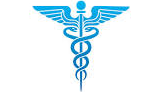Interconnected Arctic - UArctic Congress 2016
 -15%
portes grátis
-15%
portes grátis
Interconnected Arctic - UArctic Congress 2016
Savela, Hannele; Latola, Kirsi
Springer International Publishing AG
08/2018
311
Mole
Inglês
9783319861869
15 a 20 dias
504
















